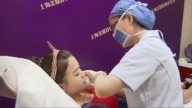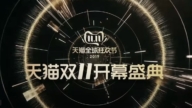【新唐人2013年11月22日訊】中共三中全會的《決定》文宣佈,要廢除對非公有制經濟各種形式的不合理規定,消除各種隱性壁壘。按照北京的命令,銀行已經增加對中小企業的借貸。但是銀行並不情願借錢給民營企業,他們利用一些漏洞,把規定給中小企業的貸款配額,用在國營企業和地方政府附屬機構頭上。專家分析,這些矛盾凸顯了中共試圖改革,但卻堅持國家主導角色所面臨的掙扎,也反映出習、李改革將遭遇的官僚集團阻力。
北京當局已經命令國營的銀行應借貸給較小企業。但銀行家們認為,借貸給小企業是他們的噩夢,因為:小企業難以評估,資產少,經濟風向轉變的時候可能迅速翻船。
英國《路透社》11月19號報導,中國的銀行家透露,有漏洞允許他們通過借貸給國有企業、或政府實體,來達到配額。解決的方法是,使用不同的會計技巧,把給國營企業的貸款掩飾為給中小企業的貸款,比如發放貸款給小的子公司,或幫助國有企業把錢付給供應商。
交通銀行一名貸款官員對《路透社》坦白說,「我們(交通銀行)是國家所有的。(國有企業)公司是國家所有的。實際上我們的關係就好像兄弟。這是為甚麼中小企業從國營銀行得不到融資。不是因為他們好或者不好。我們歧視它們是因為它們不是我們的兄弟。」
「北京天則經濟研究所」所長助理段紹譯認為,這件事反映出﹕在公有制主導之下,民營企業的地位注定低微。
北京天則經濟研究所所長助理段紹譯:「私有化程度越高的社會,它的市場經濟就會越發達。中國的國有企業的比重太大,特別是銀行業幾乎都是國有企業。這些銀行行長,他們最關心的不是銀行能賺多少錢,他關心自己的帽子能不能戴穩,所以他不求有功,但求無過。」
段紹譯說,在中國,銀行貸款供不應求,所以銀行即使不努力經營,它仍然有比較好的業績,所以它沒有必要把錢借給中小企業。
段紹譯:「因為借給中小企業,第一他的單筆業務比較小,他的營運成本比較高。第二,萬一出現風險的話,他們不太好說。但是如果借給國有企業出現風險虧了的話,反正是借給國家的,等於說左手借給右手,往往政府不容易去追究他們。」
此外,銀行採用欺騙手段抵制中央命令,也反映出中共推行改革當中「上有政策,下有對策」的痼疾。
美國《華爾街日報》11月18號引述「渣打銀行」經濟學家史蒂芬•格林的話說,中共實施經濟戰略規劃是一場「硬仗」,「在每一個領域,改革派都有清楚的想法。但是很難推動它們越過利益集團。」
比如,《華爾街日報》說,中共放開「一胎化政策」可能不太符合地方政府官僚的利益,他們將損失每年數十億美元的「計生罰款」。
段紹譯表示,中共放開計劃生育政策的阻力,主要來自於計生委的官員。
段紹譯:「因為計生委官員就靠這個獲得利益,特別是計生委他有很大的權力,原來可以罰款,可以對其他官員的陞遷進行一票否決,以至於習近平都只敢生一個女兒。可見這個計生委的權力是多麼大。」
此外,三中全會宣佈廢除勞教制度,也會遭到司法系統和公安系統的阻力。
段紹譯:「公安部門,原來的勞教所,他們利用這個特權是可以獲得很多利益的。打個比方,有勞教的話,必然有人不想被勞教,那些不想被勞教的或者想早一點解除勞教的,他們就會向這些官員賄賂。甚至勞教人員給利益集團提供廉價的勞動力。」
中共總理李克強在11月1號針對地方政府改革的演講中說,一些地方當局,為了他們自己的利益,對於中央政府的要求陽奉陰違。
而美國《彭博社》認為,習近平啟動的反腐敗運動,可能是警告中共官員和國有企業老闆的一個方式,也就是:如果你「不聽話」,我們有監獄等著你。
採訪編輯/秦雪 後製/李勇
Bank boycotts new regulations of central government
In the Third Plenary Session,
the Chinese Communist Party (CCP)
made a decision to abolish irrational regulations,
mainly on non state-owned-enterprise (SOE) entities,
and removing various recessive barriers.
According to the decision, banks have increased the range of loans
to middle and small enterprises.
But banks are reluctant to lend money to private firms,
exploiting loopholes of existing regulations,
thus assigning designated loan quota’s to private firms,
SOEs and entities affiliated to local governments.
Experts say, this phenomenon highlights the struggles resulting
from central government dominating the reforms,
as well as the blockage from bureautic groups.
Beijing Authority has ordered state-owned banks to offer
loans to middle and small sized companies.
But the bankers think, the loans to small firms is a nightmare
because small companies are difficult to evaluate,
less assets and vulnerable to going bankrupt when the
economic situation abruptly changes.
Reuters report on November 19, tells of China’s bankers disclose,
managing to achieve the assigned loan quota via
existing regulatory loopholes,
making loans to SOE’s and economic entities
affiliated to the government.
Specifically, a variety of accounting skills are used
to record the loans to SOE’s as loans to middle
and small private enterprises,
thus offering loans to SOE branches, or pay the
suppliers of SOEs.
A loan official from Bank of Communication told Reuters,
“We are owned by the state, SOEs are also owned by the state.
In fact our relationship is much like siblings.
This is why small and middle private enterprises cannot
obtain finance from state-owned banks.
This is not due to their businesses being good or bad.
But more to the point, we discriminate against
them because they are not our siblings."
Assistant Director of Beijing Unirule Institute of Economics
Duan Shaoyi points out,
such an incident demonstrates, private enterprises are doomed
with menial status’s under the circumstance of
dominance of state ownership.
Duan says:"The higher the privatization of a society,
the more developed its market economy.
The share of SOEs in China is too heavy, and most
of the banks are SOE.
The biggest concern for the bank leaders is their position,
rather than any profits the bank makes.
So they’re only pursuit is to not be at fault
rather than any form of achievement."
Duan emphasizes, in China bank loans are in short supply.
Even if a bank is not well operated, it can still achieve
good performance.
Hence they have no need to give loans to the
private sector of small & medium sized companies.
Duan says:"To begin with, because their business scale is
small yet with high operation costs, If the risks are high,
the results are then hard to gage.
But if the money is loaned to SOE’s and loss happens
due to the risks taken,
the government tends not to investigate nor punish the bank,
because they are all state owned & money just runs in
& out of the different pockets of the state."
In addition, the incident whereby the bank resisted the
order of the Central Committee of the CCP,
shows the real deep-seated issues within the regime:
Once the upper levels issue a new policy,
then the local authorities invent new counter-measures.
According to Wall Street Journal on November 18,
Standard Charted economist Stephen Green said,
“The implementation of the economic plan is a ‘hard slog’,
Choose your sector. In every area, reformers have clear ideas,
but it’s hard to push them past interest groups."
Wall Street Journal reported, to loosen the “One Child Policy"
might be in-compliancewith the interests of local officials.
They are very likely to lose several billion
US dollars in revenue from any fines if the policy
is implemented towards them.
Duan expresses, the barrier of lifting the “Birth Control Policy,"
is mainly from the officials of all governmental levels of
Health and Family Planning Commission.
Duan also said: “As the Commission gains in profits
from this policy, it has powerful authority to fine
and deny the promotion of all officials.
Xi Jinping can only have one daughter.
So you see how powerful the Commission is"
In addition, to abolish the re-education institution issued
by the Third Plenary Session, will be objected by the
judicial department and police bureaus.
Duan says “Given re-education units exist, the police system
can gain many interests by exerting privilege powers
For instance, given the existence of the re-education,
It’s inevitable that someone will not want to be re-educated,
nor free from re-education ahead of time.
Then they have to bribe these officers. Furthermore,
reeducated people are cheap labor for stakeholder groups."
On his speech over the reform of local governments
on November 1st, Premier Li Keqiang said,
Some local authorities use ostensible obedience to
deal with the policies of Central Government.
Bloomberg report stated, the anti-corruption movement launched
by Xi Jingping might be a means of warning the CCP
officials and the SOEs’ heads.
In other words, if you do not follow suit, you will end up in jail.
Interview & Edit/QinXue Post-Production/LiYong



























